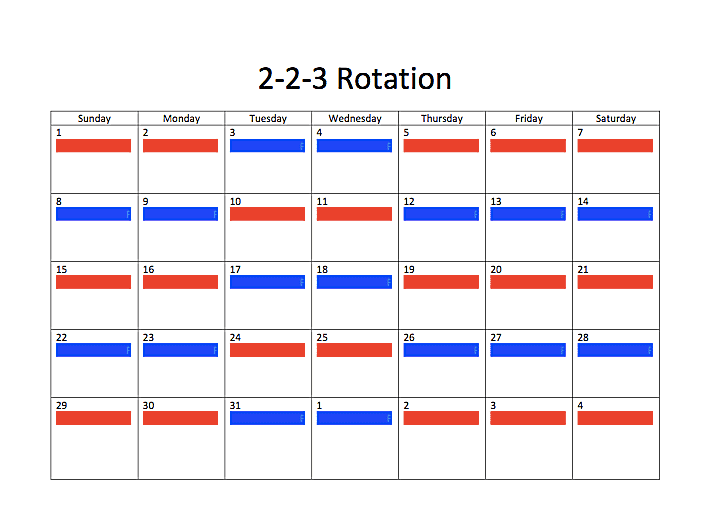There are several factor impact how long will it take me to get to work:
- Get Out The Door
- Get Through Traffic
- Method Of Transportation
- Pre-work Routine
- Where You Work
- Route To Work
- Additional Responsibilities
For most people, getting to and from work is a daily ritual that can take up a lot of time during the workweek. Establishing the time it takes to get to work is crucial for effective time management, regardless of whether you choose to drive, cycle, walk, or take public transportation. Your commute can be made more efficient and time-efficient if you are aware of the factors that affect it.
In this article, we’ll talk about the typical commuter’s time commitment and provide advice on how to shorten your trip.
Table of Contents
How Long Will It Take Me To Get To Work?
If you’re wondering, “How long will it take me to get to work?’, it’s helpful to consider a few different factors. There are many factors that affect your overall commute time, including your mode of transportation, the time you leave, and the distance you must travel. Knowing how these elements will affect your particular commute is essential to figuring out how much time you will need to travel.
Due to the unique nature of each job, there is no set time to arrive at work. Others commute to the same office throughout the workweek, while some commute to different locations each day. The time it takes to get to work depends on your particular situation, which may change at any time. Here’s an outline of a few factors that can impact your travel time:
Get Out The Door

You need to leave the house first. You underestimate how much time it takes.
Make sure all the clocks in your house have the same time on them—the correct time. If you don’t even know what time it is, you’re not going to leave on time.
Do you possess all the necessities? What items are you missing: a wallet, keys, or sunglasses? Put everything in one spot, preferably together, so that you can grab your things in the morning and leave without having to look around the house for them.
The more you can get ready the night before, the less you’ll need to get ready in the morning.
Get Through Traffic

You can find out how long it takes you to get to work using the navigation system in your car or the Maps app on your smartphone. It’s an idealized period. It will take you longer to get there.
How long it will take to pull up to the curb is specified in the driving directions. You still need time to park…
Oh, you neglected to take your phone? You’re going to need that, so go get it.
Give yourself enough time to stop at each red light along the way. And everyone is looking at the collision. I know you know how to drive on these slick roads, but everyone else…
You appear to be less than an eighth of a tank. Better stop and fill up…
Method Of Transportation
The time it takes you to get to work can vary depending on how you get there. You typically have a few options from which to choose. As you have the greatest chance of reducing your overall travel time, the fastest mode of transportation is usually the best option. If your fastest mode of transportation is frequently busy, it might be worthwhile to use a less congested but slightly more time-consuming alternative.
Using a bus, tram, or train to get to work is one of the most popular modes of transportation. Other options include riding a bike or driving to work, but which one you select will depend on your lifestyle and commute. For instance, it can be difficult to drive to crowded city centers offices because parking spaces are frequently scarce.
Pre-work Routine

Whether you’re beginning a night shift or an early morning shift, getting ready for work and leaving on time are crucial parts of your routine. Depending on what you do in your morning routine before work, this can affect how long it takes you to get there. For instance, there is a higher likelihood that you will miss the bus or train if you arrive late for work. Or you might feel sluggish after eating a large breakfast, which would make your morning commute longer.
A key component of arriving at work on time is how you manage your time before leaving for work. You run the risk of being late if it’s not handled properly. This may result in unneeded stress and negative workplace consequences for being late.
Where You Work
The distance you must travel to get to work will vary depending on where it is. For instance, you are less likely to be concerned about commute times if you live close to your place of employment. Take the necessary steps to more effectively account for commute times if you live in a more rural area or if your workplace is one that changes frequently.
Your commute to work and even the type of work you do are significantly influenced by where you live. To reduce the amount of time spent commuting, people frequently move closer to their place of employment. The length of your commute will depend significantly on where you live, whether or not you decide to move for work.
Route To Work
The route you take to work could affect how long it takes you to get there. In some cases, taking a busier route can reduce your travel time by one or two minutes. Other times, you might prefer the slower route even though it takes longer because the added stress of a fast route might not be worth the time saved. It’s useful to decide which approach you believe will serve you the best overall.
Additional Responsibilities
The amount of time it takes you to get to work may be impacted by additional responsibilities you have. As an illustration, parents frequently drop off their kids at school before heading to the office. As a result, you might have to start your trip later than planned or in the middle of rush hour, which will lengthen it considerably. Your travel time can be optimized with careful route planning that takes into account your additional responsibilities.
See more about How Long Do Interviews Last?
How Long Does The Typical Commute Take?
The average commute time in the UK is 59 minutes, according to statistics from the Trades Union Congress (TUC). Depending on your precise location, this may change. For instance, commuters in London and the southeast can anticipate a commute time of about an hour and 20 minutes.

Ways To Cut The Time It Takes To Go To Work In Half
You might think that your commute to work is far too long. If this is the case, there are many ways to enhance the enjoyment of your trip. Here are a few suggestions for shortening your morning commute:
Early Mornings Are Recommended
While it may be tempting to avoid getting up until the last minute before leaving for work, doing so can be beneficial.
You can organize all of your belongings, get ready for the day ahead, and be more relaxed and ready for your commute to work if you get up early.
By giving yourself more time, you can complete tasks like going to the gym or getting a cup of coffee before work. It’s also a good idea to get up early in order to avoid rush hour.
Breakfast Should Be Light

Your morning energy levels are greatly influenced by what you eat for breakfast, and it also has a calming effect. Eat foods that release energy gradually, such as porridge.
You could use this to help you get ready for a busy day. It can also be advantageous if you exercise while commuting, such as by walking or cycling.
Take A Stroll
A restful night’s sleep will ensure that you arrive on time and help you get ready for your morning commute.
Take a 10- to 15-minute walk before your commute to stretch your muscles, improve circulation, and feel more alert. This is it.
Stretch your muscles, improve circulation, and increase your alertness by going for a 10- to 15-minute walk before your commute. This is a great strategy for enhancing both your physical and emotional well-being.
Consider Making A More Active Commute To Work
Driving is notoriously stressful for commuters, particularly during rush hour traffic. Consider switching to a more active form of transportation to reduce the stress, delays, and pollution associated with driving a car.
Rather than driving or using public transportation, you might want to consider cycling or walking to work. You might want to plan your commute to work more carefully if these routes are anticipated to take longer.
Look For A Career That Is Closer To Your Home
It might be time to look for other employment with a location that is closer to your home if you feel that you are commuting to and from work each day for an excessive amount of time.
Finding a job close to home may allow you to reduce your commute time significantly, which will benefit your general health. Additionally, you might be able to significantly reduce your transportation costs.
See more about What Is A 2-2-3 Schedule
Final Words
The vehicles you use to commute to work, the distance from your home to your workplace can help you answer the question, “how long will it take me to get to work.”
We hope that this piece provides you with the clarity and knowledge you need. This article was written to provide you with in-depth knowledge about how long it would take you to get to work.
Many thanks for reading.



